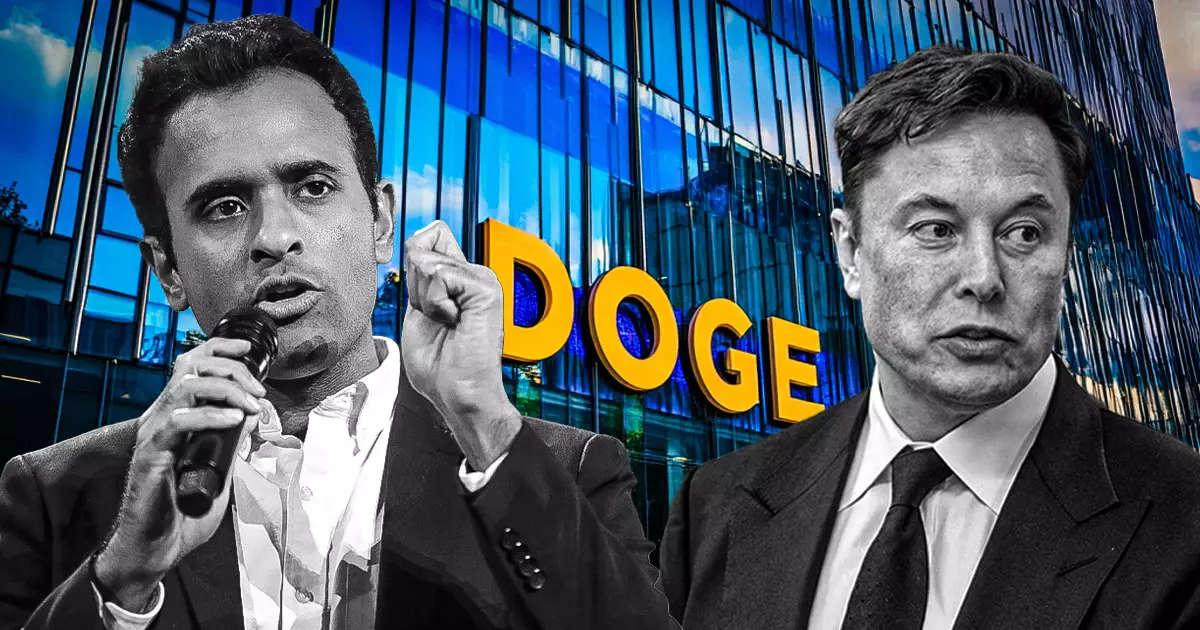In a bold move that closely aligns with his vision of a more streamlined federal government, President-elect Donald Trump has inaugurated a unique initiative—Department of Government Efficiency (DOGE)—led by prominent figures in the tech industry and crypto landscape, Elon Musk and Vivek Ramaswamy. Announced via Trump’s Truth Social platform on November 13, this initiative aims to tackle inefficiencies within the U.S. government, focusing on reducing the $6.5 trillion federal budget’s excess waste and fraud.
Trump’s ambition for DOGE echoes historical precedence; he compares it to the monumental Manhattan Project of World War II, underscoring its vital role in what he terms his “Save America” campaign. By enlisting influential advocates like Musk and Ramaswamy, the goal is to foster a government that prioritizes efficiency and transparency while significantly cutting back on bureaucratic processes.
The strategic framework for DOGE emphasizes independence; however, meaningful collaboration with both the White House and the Office of Management and Budget is essential to its operational success. This newfound department is tasked with the colossal responsibility of identifying and eliminating the rampant inefficiencies that have become synonymous with federal governance. Trump has set a milestone date for achieving these reforms—July 4, 2026—an anniversary that underlines the importance of liberation and efficiency in the context of the American ethos.
Musk and Ramaswamy’s involvement brings not only technological expertise but a fresh, innovative approach to reforming governance. Musk has promised to maintain transparency by committing to public updates and encouraging citizen feedback on DOGE operations. He even proposed a unique leaderboard showcasing the government’s most extravagant expenditures, intended to highlight waste and engage the public.
At the forefront of DOGE’s initiative is a focus on citizen involvement. Ramaswamy has expressed a desire for Americans to actively participate in identifying wasteful government practices. By calling for the public to submit examples of inefficiency, DOGE positions itself as a responsive and interactive entity that values citizen input. This approach not only aims to empower individuals but also reflects a broader trend toward participatory governance.
This community-based strategy can ignite public interest and involvement, encouraging transparency and accountability in governmental expenditures. By leveraging social media platforms like X, Musk is poised to create a dialogue with citizens. His engagement strategy includes updates that allow taxpayers to voice concerns about perceived inefficiencies, emphasizing that the very essence of democracy is ensuring the government works for the people.
Interestingly, the announcement of DOGE has generated a substantial buzz within crypto communities. Named after the popular meme cryptocurrency, Dogecoin, the initiative has naturally excited its supporters. Nevertheless, despite the enthusiasm surrounding DOGE, the cryptocurrency experienced a 10% drop following the announcement. Market analysts speculate that Musk’s involvement could still spell positive outcomes for Dogecoin in the long term, especially as crypto markets anticipate a bull run.
DOGE represents an ambitious, forward-thinking initiative that aspires to revolutionize government efficiency in the United States. With well-known advocates like Musk and Ramaswamy leading the charge and fostering public engagement, there lies potential for genuine reform. As the nation prepares for the unfolding of DOGE’s objectives, the intersection of government efficiency and cryptocurrency could redefine aspects of American governance and fiscal responsibility.


Leave a Reply